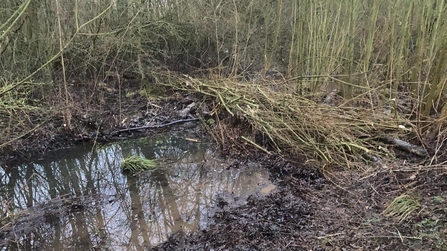Work has been completed at Woodside Farm near Ilkeston to prevent water voles from struggling due to rising water levels, all thanks to the Green Recovery Challenge Fund from The Heritage Lottery Fund.
Water voles feel most at home in areas next to slow flowing streams and brooks, where they burrow into the banks to nest and graze on the bankside vegetation.
Unfortunately, the brooks at Woodside had become overgrown with mature willow trees which means there has been less opportunity for the grasses, rushes and low growing herbaceous plants - that water voles like to eat - to grow.
Along with this, fast flowing water has scoured the river streambed making the channel too deep and narrow so the water that flows through the brook will be too fast for the good water vole habitat. The quicker the water flows the quicker their burrows will flood when the water levels rise.


